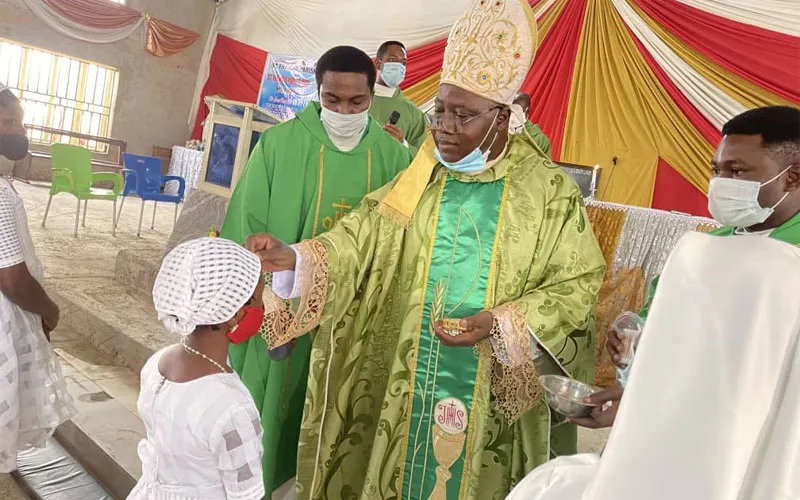Pope Francis instituted Sunday of the Word of God in his 30 September 2019 Apostolic Letter “Aperuit illis”, intending it to be a day dedicated to the celebration, reflection and dissemination of the Word by Catholics across the globe.
In the homily, Archbishop Kaigama encouraged Christians to use the Bible for meditation and prayer, underscoring the need to also “realize that we don’t all become experts in interpreting the Bible without the relevant biblical studies.”
Catholics were also urged, while reading the Scripture, to adhere to the Catechism of the Catholic Church (CCC), which reminds everyone to distinguish between the literal sense that implies the text as it needs to be understood, and the spiritual sense.
The spiritual sense, the Local Ordinary of Abuja Archdiocese explained, is subdivided into the moral sense (how Christ desires His disciples to act), the allegorical sense (stories that point to Christ for instance the crossing of the Red Sea), and the anagogical sense, which relates events in terms of their eternal significance including death, final judgment, hell and heaven.
Meanwhile, the Nigerian Archbishop has reported about the annual event of week-long prayer for Christian unity that starts January 18.
“For one week we have been visiting different churches and praying in solidarity with Christians of other denominations, asking God for unity among Christians and peace and security in our nation,” Archbishop Kaigama said of the interdenominational prayer event held under the theme, “Abide in my love and you shall bear much fruits”.
He added, “In our diversity, we have one God, the Father from whom all things came and for whom we live. We need to break down the mountains of age-old prejudices and antagonisms against one another.”
Archbishop Kaigama expressed gratitude to the Chairman of the Christian Association of Nigeria (CAN), Rev. Samson Jonah and Fr. Robert Achiaga, the Chairman of the Ecumenical Commission of the Archdiocese of Abuja, for their role in organizing the activities of the week-long initiative.
“It is my sincere hope that the fruits of this spiritual exercise will foster greater unity among Christians both here in the Federal Capital Territory and in Nigeria, and indeed in the world at large,” the Nigerian Archbishop said.
He added, “We must continue to show openness to dialogue and cooperation with one another as Jesus desires in John 17:21, that we may all be one.”








